This conversation is part of a series of interviews with various brothers and teachers, including many fellow writers, all of which are part of the body of work surrounding my book-length memoir An Ordinary Disaster—one man's proof that we can all learn to listen to ourselves, and to act upon the inner voice of our self, our sanity and our soul.
Today I'm speaking with Chris Ryan, author of Sex at Dawn, Civilized to Death and a very active Substack called
as well as his long running podcast by the same name. I came across Sex at Dawn several years ago and that book has played a big part in cracking open my thinking about love, sex, and relationship, as it has for many many others. More recently, I took the opportunity to meet up with Chris at a retreat that he co-hosted in Montana, where we connected as fellow writers, van travelers, hot spring aficionados and former-but-not-current-users of psychedelic substances. Chris mentioned that he and his partner would be spending the winter in Crestone and invited me to stop by sometime, and so, just a couple of months later, I found myself recording this interview in his little office studio slash guest bedroom... and so... I think it's fair to say that I've been in bed with Chris Ryan.Especially since I'm working on building a third career as a writer, I really value Chris' life experience as a working artist who's met with some success—and as someone who embodies warmth, curiosity, irreverence, adventure, equanimity, poise, truth, and openness, just to name a few of the values that I see and share.
I'm grateful to Chris and Anya for the invitation to visit with them in Crestone, and for his support of my efforts with this podcast and as a writer. As you listen, you might scan the questions at the bottom of the show notes, or consider just this one: is there anything about yourself that you have come out about—or that you haven't come out about, but could, or would like to embody more openly?
Show Notes
Changing the Relationship with Alcohol
“The problem is the lack of problem.” I suggest that perhaps he “suffers from a lack of trauma.” He feels that he didn’t need to stop, but he “wanted to clearly know that I was in charge.” “It works well when the dog knows you’re the boss.” It’s not so much the question of whether there’s a “problem”—if you feel like changing, that’s reason enough. “A lot of people feel like it’s a failure to give up and let go of things that used to work…”
Maia Szalavitz’s thesis in Unbroken Brain that there is no such thing as an “addictive personality,” and that addiction is a learning disorder. Stanton Peele’s book Love and Addiction. If you have a “hole in your psyche,” the problem isn’t the substance, it’s the hole.
Learning to let go… to choose to close a chapter consciously, not as the result of some catastrophe, or of ‘hitting bottom.’ “If you let go, that's empowering—as opposed to having it ripped from your grasp…” “There's something powerful about letting go… There's power in conscious loss.” We have a culture of attachment… of attainment, of accumulation…
When I choose to let go of things, I can look back and see the gold in the past. “Why would you want to carry around the ashes?” “If you don't put it down, then you can't up anything else.” I write about letting go in The Last Time.
Relationships with other men, and with women, and how coming out is a form of “facing a fire.”
“A lot of straight men are just fucking boring.” “A lot of my closest male friends have been gay… Those relationships had an intensity and an openness that I rarely find with straight men” “Straight men are fragile.” “To be a gay man…means that you have faced a fire.” “They’ve been through the experience of saying ‘fuck it, I'm gonna be authentic.’” A lot of us remain untempered without some sort of defining challenge.
Homosociality
“I think there's a lot of homoerotic energy in this culture of masculinity.” “Vulnerability and courage are two expressions of the same thing.” Grayson Perry. David Buchbinder, Studying Men and Masculinities. Eve Sedgwick. There is a continuum between homosociality and homosexuality. We have a need and a hunger for intimacy and affection that isn’t sexual. “One of the pleasures of watching sports is seeing this unrestrained expression of love and happiness…and joy with a group of men.” We experience homosocial contact—and being in our bodies—vicariously through sports.
Dogs and Children
“If I were living the way humans were designed to live…then kids and dogs are just part of the deal…” “I don't want to be locked into that bullshit world by way of a kid…” It always seemed like kindof a bad deal to me. Seth Rogan: ‘If I don’t have kids, maybe I’ll feel bad about that for the two or three months just before I die… but if I do have kids, and it’s a mistake, I’m gonna feel bad about that for fifty years.” “You should never write a book unless you absolutely have to…and I think that way about kids. You shouldn't have kids unless you really really need to.”
Grief Becomes a Constant
“As I get older, grief becomes a constant. … In addition to those people that are gone, there’s also the potential lives that you aren’t gonna live". The “fantasy of what could happen in my life. You get older and it narrows.” There’s just not enough time to do everything. He doesn’t feel conflicted about kids… For me, “allowing myself to feel the grief is part of letting that go.” Chris says that, “I admire that…but I don’t envy it.” Choosing to not have children as a form of resistance to our current cultural and economic model of what it means to be a man. “Kids are like a clock on the wall” that help to keep track of how old we are…
Identity and his own ‘Coming Out’
When do you feel that you became the version of yourself that you are now? the “perfect embodiment of this self…it’s like two images that come over each other and there’s that moment that they line up perfectly…like an eclipse…” That feeling of “this is exactly where I need to be.” A moment of realization that “it was monogamy that was freaking me out…I didn’t understand that because I’d never conceived that there was any other possibility for a way to arrange a relationship…” that led to his own ‘coming out,’ as “not, by nature, monogamous,” and how taking that fork in the road tempered him. The challenge of choosing to honest with himself—and everyone else.
Love
The conflict of being forced to only love one person. Feeling love as a “closure.” “Its not about monogamy or non-monogamy, it’s about authenticity.” “People come to me for relationship advice… The only approach I advocate is authenticity and honesty and sincerity, and compassion for where your partner is coming from.” Love as a vehicle for growth and expansion.
Generosity, Giving and Taking
It’s about balance. “Energy flows through us.” Learning to accept from others… and learning to ask. “We feel weak because a muscle is growing.” Who’s giving, who’s getting, whose stuff is it… “The first forty years of my life was an inhalation, and somewhere around forty…was the beginning of an exhalation.” “You do own something to the celestial bank account…” “Not having kids means you’re able to be generous to a lot more people.”
You can find Chris on Substack at
and on the web at https://chrisryanphd.com.References and further reading
I do highly recommend joining me as a subscriber to Chris' Substack
... and you might enjoy some of my other writing on the subjects of alcohol, masculinity, identity, fatherhood—especiallyThe Man Pays
My friend Meredith always had a knack for finding places where rent was optional. I was on one of my early trips to New York City, summer of ’97 I think, staying with her and another friend from college in a fourth-floor walkup on Second Ave near 11th—and the owner had just disappeared. Not quite a squat, like the occupied warehouses that I knew of in S…
The Truth About Love—how what we know as "love" often leaves out the truth, and how men can bring more truth to love
Early in my own life, what I felt most missing was the truth. Not some objective truth, but the simple truth of sharing and reflecting one’s experience in the world. My parents kept telling me that what they were saying was important while avoiding much of anything that actually felt meaningful. A lot of what they said just didn’t sound true, not becaus…
Appreciating the uniquely delicious feeling of the last time
A few months ago I was in the water out beyond the Golden Gate bridge, as I have been at least several hundred times over the past forty-plus years. I often call it all “sailing” for simplicity’s sake, but that day I was wing-foiling, riding a hand-built racing hydrofoil outside the Gate at over twenty miles per hour, gripping the sail directly in my ha…
…as well as these books and other resources:
Maia Szalavitz, Unbroken Brain
Stanton Peele, Love and Addiction
Grayson Perry on Youtube and his great book The Descent of Man
David Buchbinder, Studying Men and Masculinities
Eve Sedgwick, Between Men: English Literature and Male Homosocial Desire
Seth Rogan on not having kids
I’ve got some questions for you…
What is your own relationship with alcohol, and how has that changed over time? Is there anything about that relationship that you’re aware of wanting to change?
How do your own relationships with other men, or women, play into your relationships with women, or men, or whichever?
Is there anything about yourself that you have come out about—or that you you haven't, but could, or would like to embody more openly? What has that coming out done for you—or, what could it do for you?
Do you have kids? How did you end up as a parent, or not? What has that been like for you?
Is there anything that you have consciously given up—and what was that experience like?
And… what would you have asked Chris in an interview?
Happy New Year from San Francisco
And finally, please let me know if you enjoyed this piece by click the little heart below 🤍
👇🏻

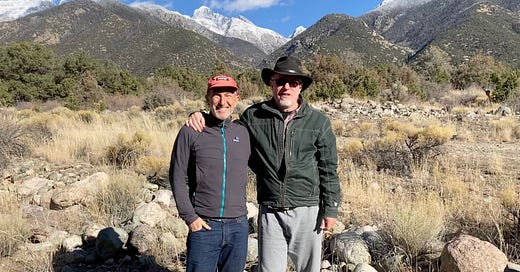




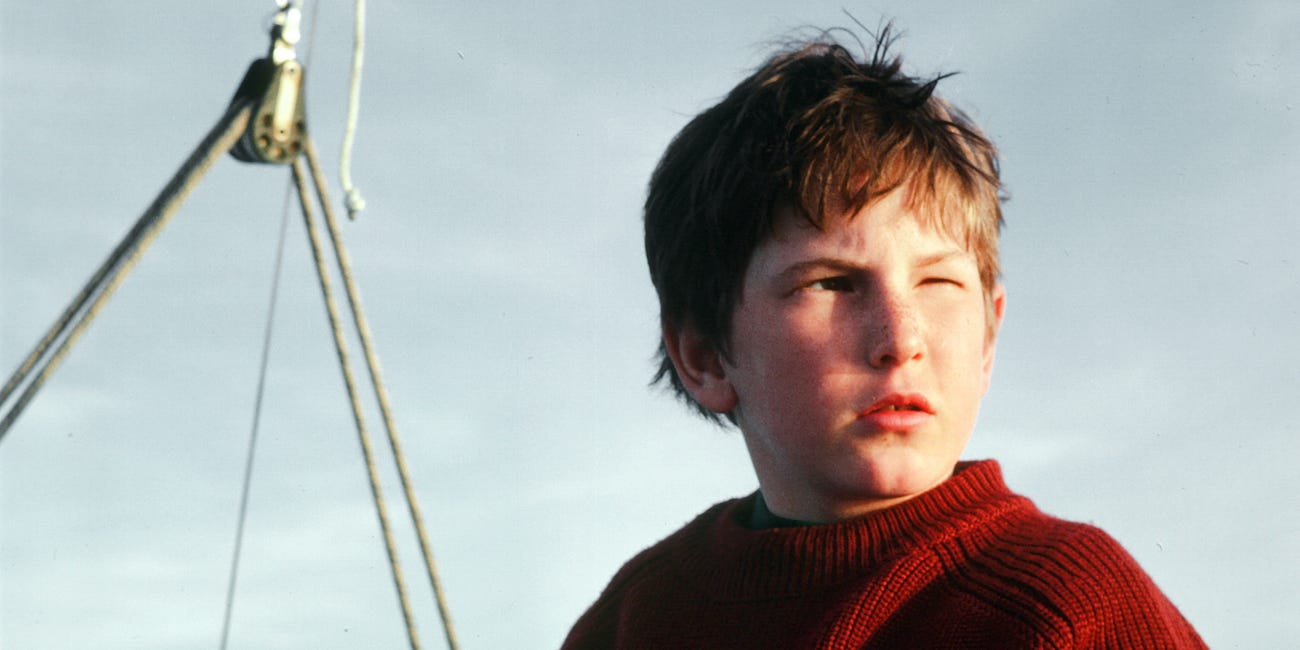
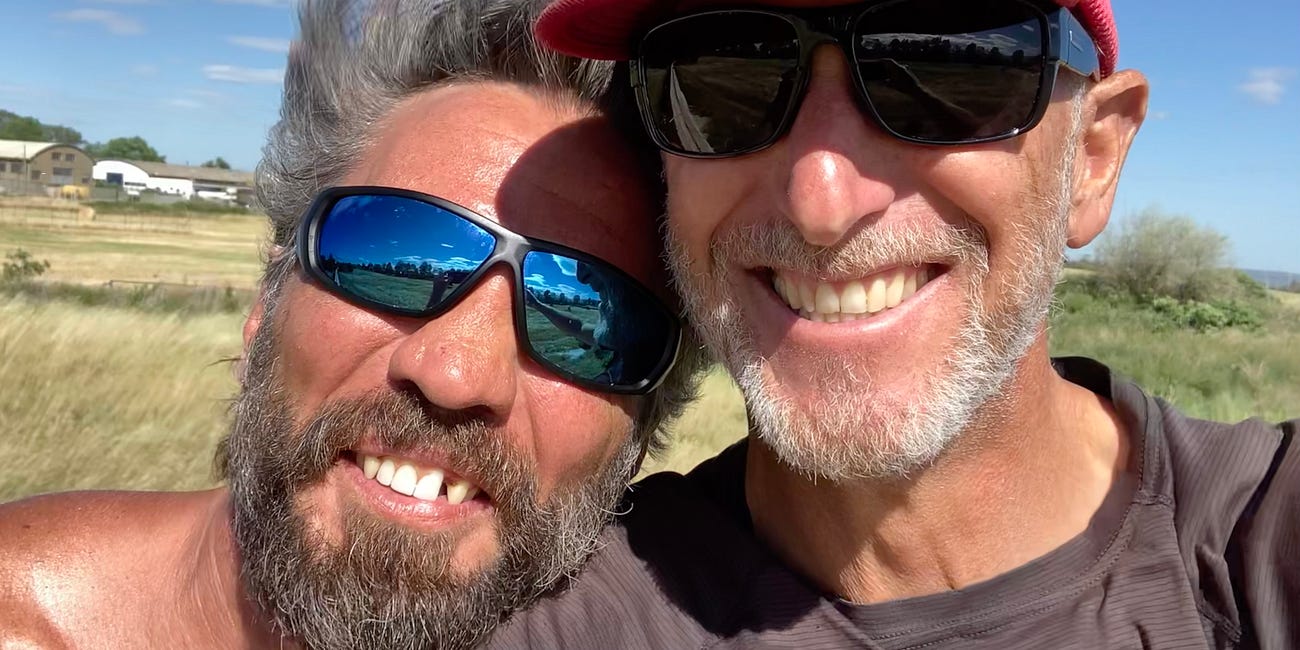




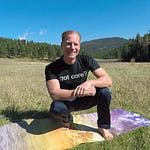




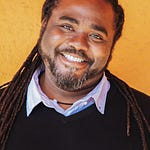
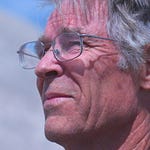
Share this post